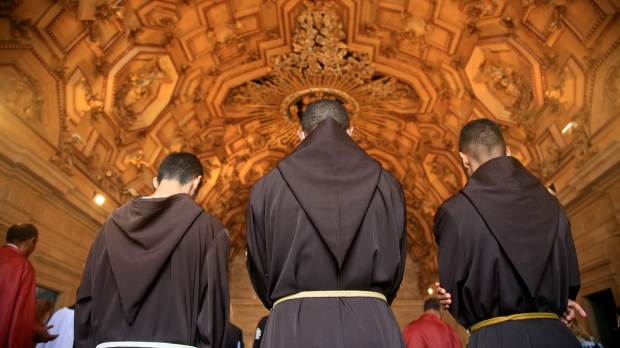While the Liturgy of the Hours is typically celebrated on its own, it is a liturgical celebration that is meant to be an extension of the Mass.
The Divine Office shares many things in common with the Mass and can amplify a person’s spiritual life.
Extension of the Mass
The Catechism of the Catholic Church explains how praying the Liturgy of the Hours can be a demanding type of prayer:
The celebration of the Liturgy of the Hours demands not only harmonizing the voice with the praying heart, but also a deeper “understanding of the liturgy and of the Bible, especially of the Psalms.”
CCC 1176
Yet, it is precisely these demands that can open us up to the various elements of the Divine Office that deepen our understanding of the Bible and the liturgical celebration of the Mass:
The hymns and litanies of the Liturgy of the Hours integrate the prayer of the psalms into the age of the Church, expressing the symbolism of the time of day, the liturgical season, or the feast being celebrated. Moreover, the reading from the Word of God at each Hour (with the subsequent responses or troparia) and readings from the Fathers and spiritual masters at certain Hours, reveal more deeply the meaning of the mystery being celebrated, assist in understanding the psalms, and prepare for silent prayer. The lectio divina, where the Word of God is so read and meditated that it becomes prayer, is thus rooted in the liturgical celebration.
CCC 1177
The Catechism goes so far as to name the Liturgy of the Hours as an “extension” of the Mass that can help enhance our spiritual devotions:
The Liturgy of the Hours, which is like an extension of the Eucharistic celebration, does not exclude but rather in a complementary way calls forth the various devotions of the People of God, especially adoration and worship of the Blessed Sacrament.
CCC 1178
As a result, praying the Divine Office on a regular basis is one way to deepen your participation in the Mass.



